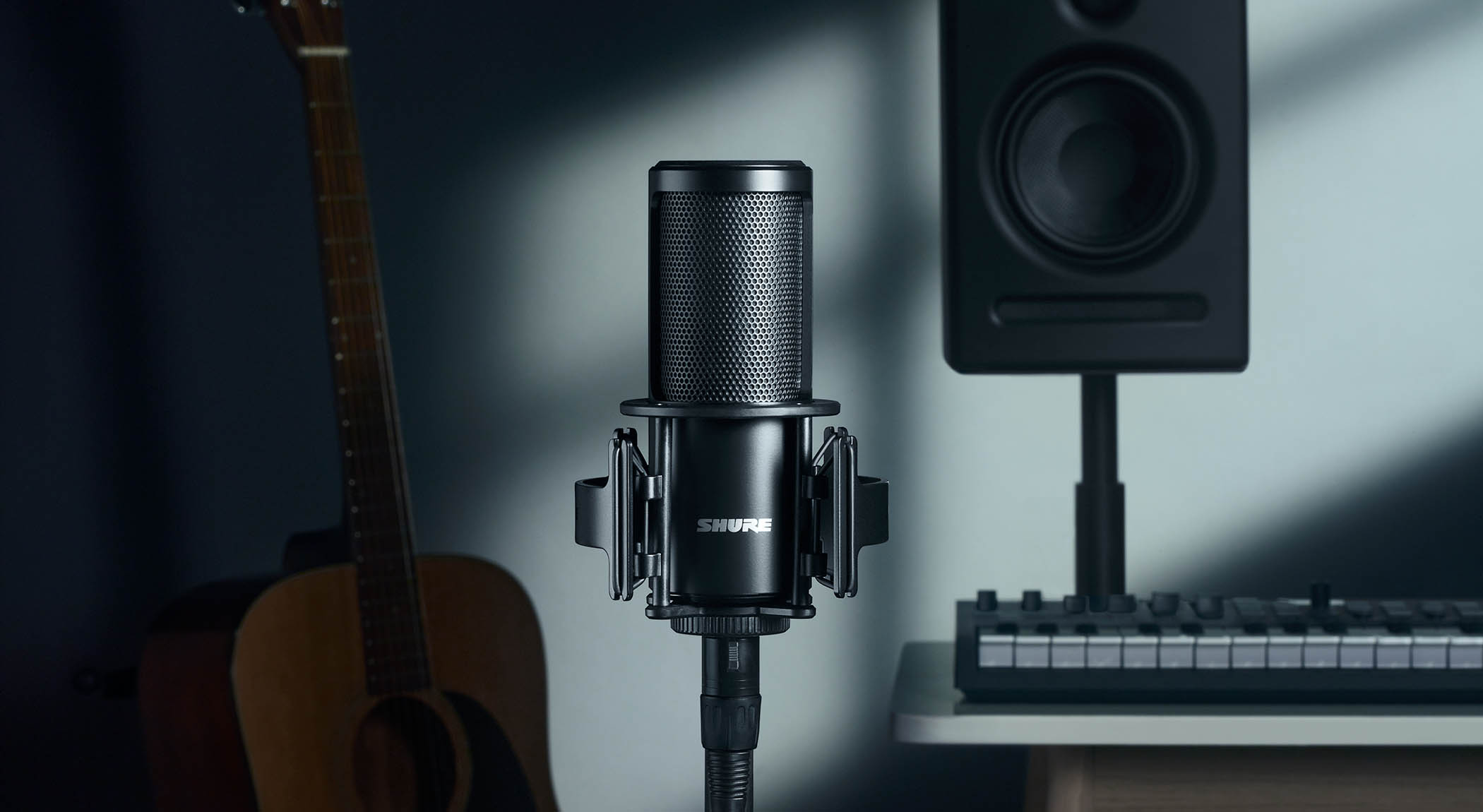
Shure SM4 Home Recording Microphone: What is it?
In the not-too-distant past when guitarists asked me what I would recommend as a first microphone purchase for their home studios, I would usually recommend a Shure SM57.
It’s a studio standard that remains relevant and useful as a studio gets upgraded to higher equipment standards, but perhaps its only setback is that it’s ideal mainly for a limited variety of uses – such as mic’ng amps and acoustic guitars – and is not the best budget vocal mic.
With the rapid growth of amp emulation software and awesome direct recording devices, it’s no longer as important to start with a great mic for recording traditional amps as it used to be.
To me, it’s now better to begin with a much more versatile mic, particularly one that is great for recording vocals. There are a lot of good choices out there, but the new Shure SM4 may have an edge over the competition when it comes to capturing vivid vocals, great guitar tones and much more.
The Shure SM4 is a dual-diaphragm condenser microphone with a 1-inch brass capsule that provides a uniform cardioid (kidney- or heart-shape) polar pattern for effective isolation of centered sound sources and rejection of off-axis sounds.
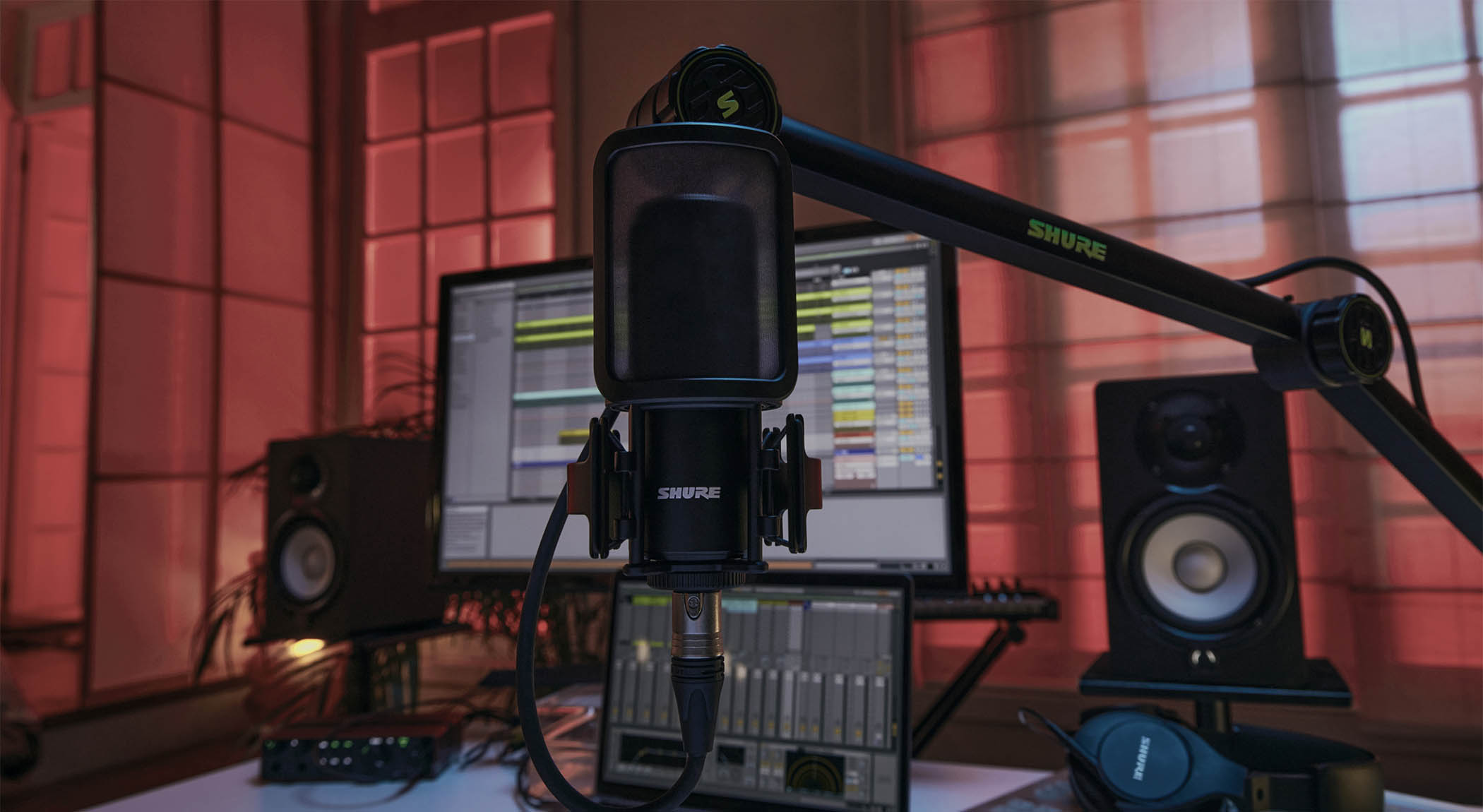
Its frequency response is relatively flat, with a slight upward bump of a few dB at 4kHz that dips to 0dB at 8kHz and bumps upwards again with a curve between 8 to 20kHz.
Detachable magnetic external pop filters plus an included shock mount keep plosives, rumbles and vibrations from ruining recordings
This provides enhanced articulation for vocals and midrange instruments like guitars as well as a brilliant sensation of upper frequency presence and air. The mic can handle maximum sound pressure levels (SPL) of 140dB, which is more than enough headroom for miking a fully cranked 100-watt guitar amp.
Beyond these impressive specs, several other features make the Shure SM4 stand out from similar competition in its price range. Most notable is its patent-pending internal woven-mesh Faraday cage that blocks RF noise from devices like mobile phones, laptop computers and wireless routers.
The diaphragm is designed to reduce the bass emphasis of the proximity effect, and both internal and included detachable magnetic external pop filters plus an included shock mount keep plosives, rumbles and vibrations from ruining recordings.
Shure SM4 Home Recording Microphone: Specs
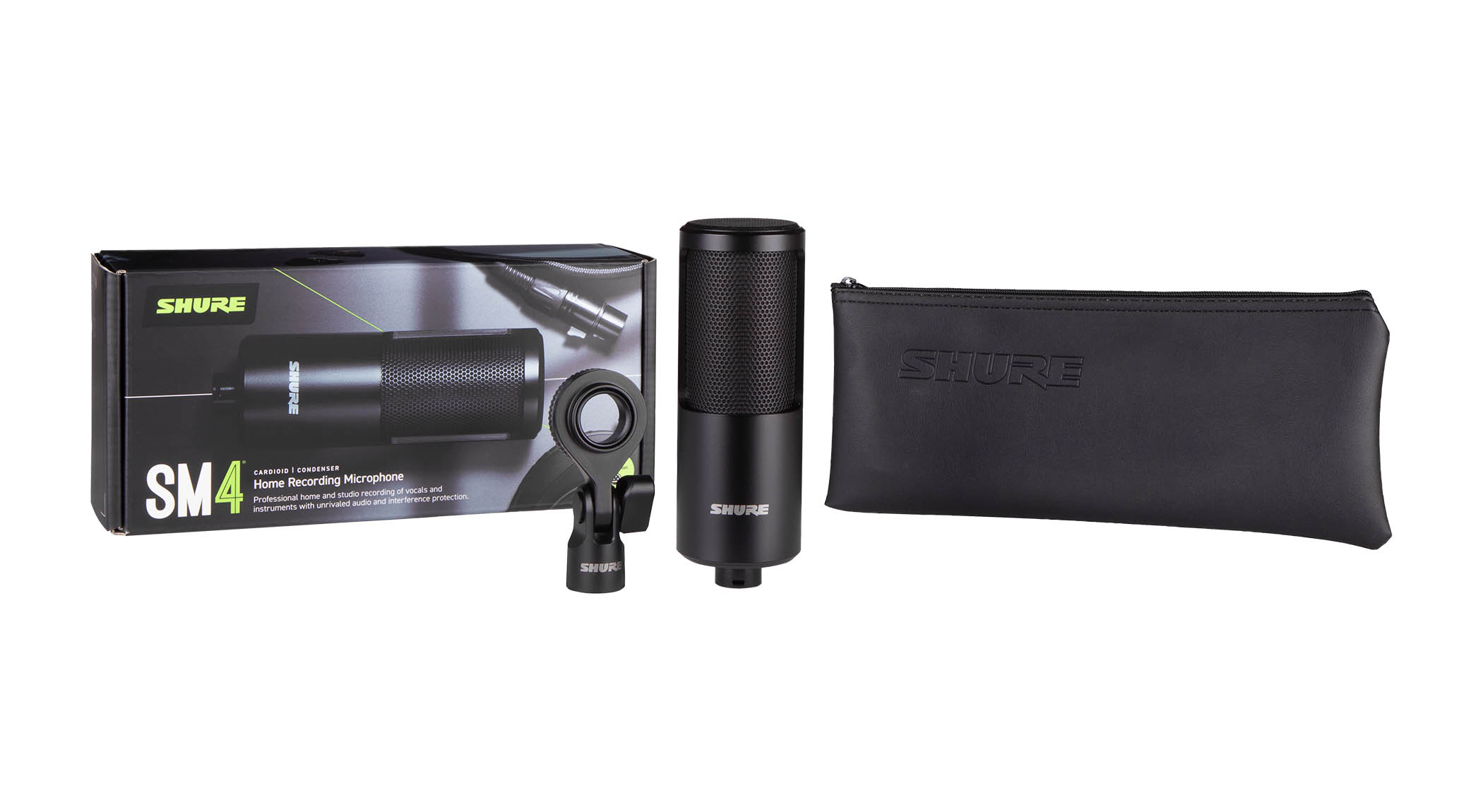
Launch price: $199/£195
Type: Condenser microphone
Polar Pattern: Cardioid
Frequency Response: 20 to 20,000 Hz
Signal-to-Noise Ratio: 79 dB
Maximum SPL: 140 dB
Connector: XLR
Power Requirements: 48 VDC phantom power
Contact: Shure
Shure SM4 Home Recording Microphone: Usability and sounds
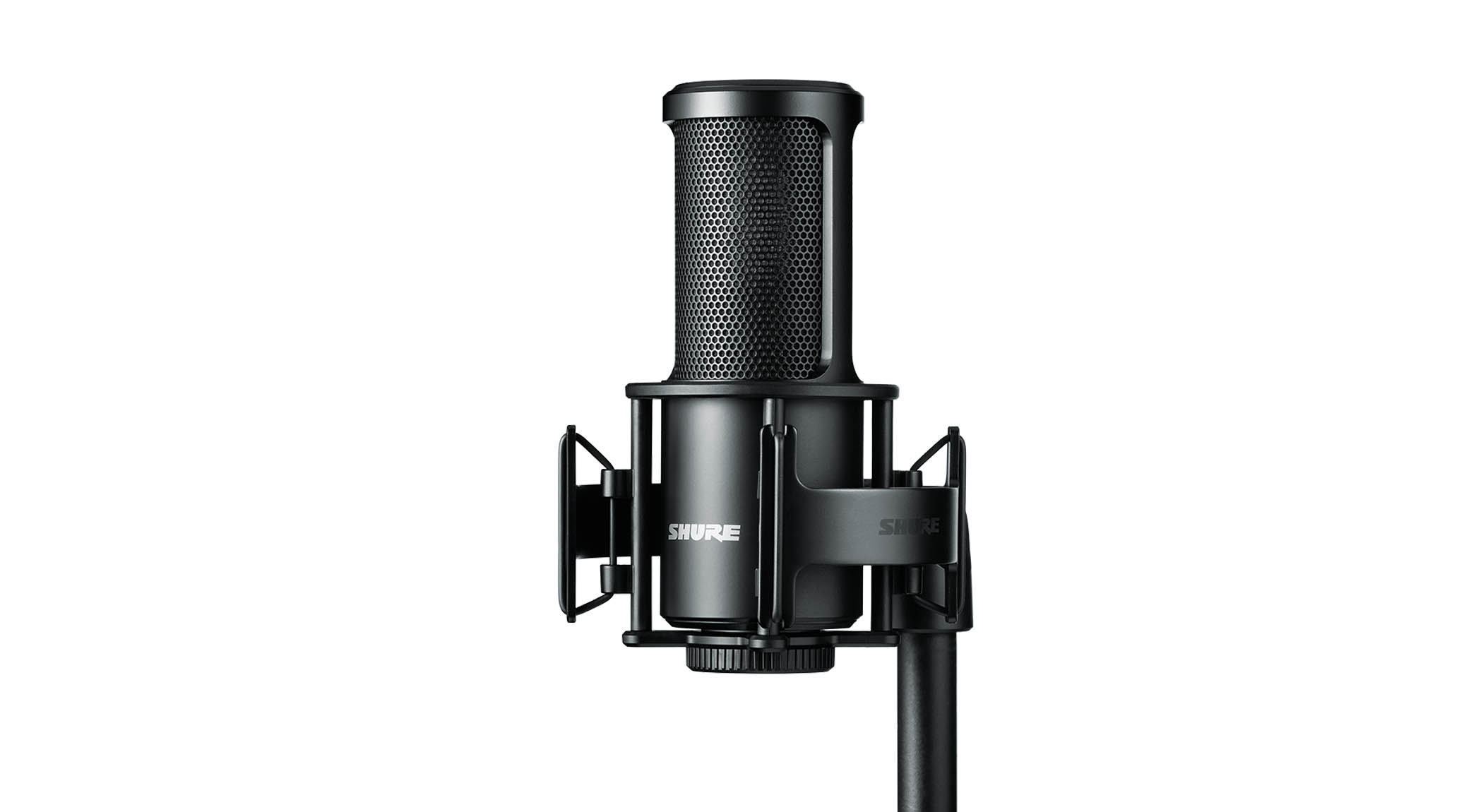
The Shure SM4 is an outstanding multi-purpose microphone that sounds so good on a wide variety of instruments that you may not feel the need to acquire an additional mic for quite some time.
With its large dual diaphragm design that maintains focus and clarity of bass and treble frequencies, it is particularly effective at capturing rich, natural-sounding vocals, especially when recording singers with strong bass resonance (are ya listenin’ Barry White?).
I’m still mainly a dynamic mic purist when it comes to recording electric guitar amps, but the SM4 does a great job capturing bold midrange tones and it has an edge over my trusty SM57s when it comes to recording the full range of modern high-gain amps with more aggressive bass thump.
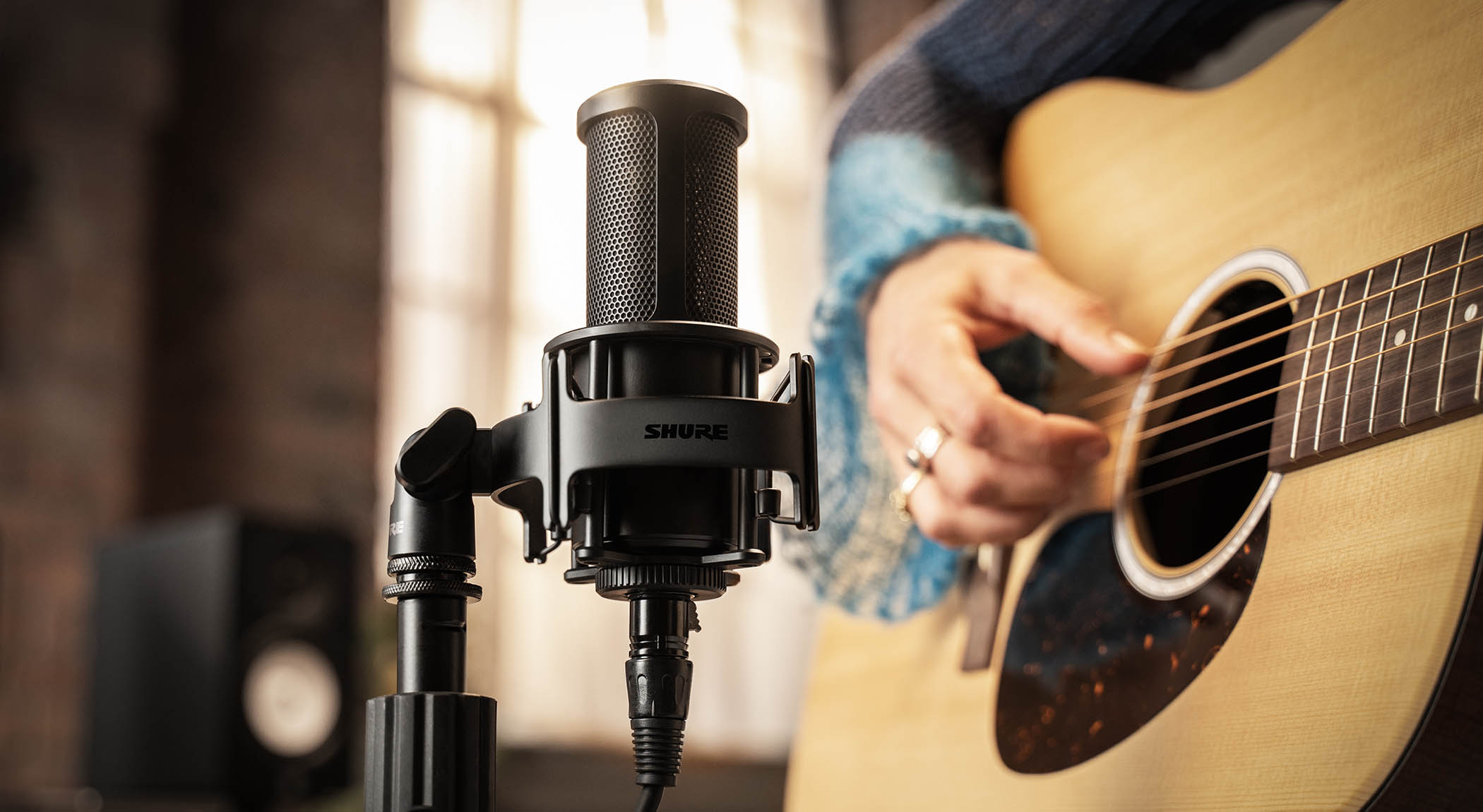
Acoustic guitars fare equally well, although the bass can be more “hyped” without using a high-pass filter to roll off lower frequencies (which I tend to do anyway). I had only one SM4 to test as an overhead on a drum kit, but the mic captured the full range of the kick, snare, toms and cymbals with excellent detail.
I tried to get the SM4 to capture interference by waving cell phones, iPads and laptop computers in the area around it, but the test recordings remained quiet.
I have previously had an occasional recording ruined by interference from mobile device signals, but with the SM4 I no longer feel the need to enforce a “no cell phones” ban when other musicians are working with me.
Shure SM4 Home Recording Microphone: Verdict
With the SM4 I no longer feel the need to enforce a “no cell phones” ban when other musicians are working with me
The Shure SM4 is certain to become a standard for home studio engineers seeking a very versatile first mic, but it’s also recommended for users seeking a useful addition to their mic collections thanks to its super affordable price and value.







